The views expressed in our content reflect individual perspectives and do not represent the authoritative views of the Baha'i Faith.
Some past articles I’ve written explored the concept, without actually using the cliché, that when life gives you lemons, make lemonade.
I use it here because it beautifully illustrates the point that our attitude to the trials we face in life is what determines how we come through them. We can choose to feel sorry for ourselves and become morose, negative individuals, or we can face the challenges and learn just what inner strength we have inside each and every one of us:
What is necessary is divine joy. Divine happiness is the speaker of the heart. … The soul of man must be happy no matter where he is. One must attain to that condition of inward beatitude and peace; then outward circumstances will not alter his spiritual calmness and joyfulness. – Abdu’l-Baha, as quoted by Martha Root, Star of the West, Volume 7, p. 101.
The world needs more happiness and illumination. The star of happiness is in every heart, we must remove the clouds so that it may twinkle radiantly. – Ibid.

Chris Rock
In prior articles, one thing we didn’t examine was the impact that our life challenges have on our artistic endeavors. Comedian Chris Rock posited that “A perfect life makes horrible art.” Though not universally true, when it comes to comedy a hard life probably can become the source of much great material. Numerous comedians have publicly admitted that they suffer from depression and/or various addictions. By using their creativity to put a comedic spin on their lives and how they perceive life in general, it helps them work through their fears and anxieties. The laughter and applause they get from others when they deliver their funny lines is another form of salve for their pain.
What makes us laugh at their jokes? We aren’t laughing at them—we laugh because somewhere within us the humor strikes a chord with something in our own experience. None of our lives are perfect. Even those of us who may not have been brought up in dysfunctional families still have moments that we can recall where something went awry, and the joke hits home. Cause and effect. Suffering may be the cause, but the effect is to soothe.
Scientists have begun studies to determine if and how humor affects the body. Patients put into an MRI machine were shown cartoons and the scans indicated a rise in their dopamine levels. Back in a 1987 experiment, patients with a pressure cuff who were shown a Lily Tomlin comedy skit were able to tolerate tighter compression than others who were not given something humorous to see or hear.
The scientific studies may be recent, but the concept that humor as a prescription is not. The ancient Greeks had a theater at one of their healing centers where patients could watch dramas and comedies which, while they were immersed in the production taking place before them, took their minds away from their physical ailments.
Stories about Baha’u’llah and Abdu’l-Baha often mention their positive sense of humor. One anecdote from the diary of Mirza Ahmad Sohrab, dated March 26, 1914, is indicative of Abdu’l-Baha’s belief in the benefits of laughter and how he used it to beneficent effect:
While Abdu’l-Baha was dictating tablets this morning, an Arab was announced and after a few minutes another one came in. Abdu’l-Baha instantly saw that these grown-up children of nature were not friendly with each other and as a subtle master of human nature, he started immediately to establish conciliation between them. Each of them sat there inwardly growling at his enemy. At first Abdu’l-Baha spoke to them in such a manner as to make them laugh. They did not want to laugh, neither did they want to look at each other, but they could not help doing both. Then with his deep insight into their hearts he said:
“Are not men really children? The life of men is but a few days; then death overtakes them. Is it not foolish to attach one’s heart to the worldly love and hate? Why should we let envy and hatred separate us? The strange part of it is that they have no outward existence. Happiness is the king of our hearts. Let us not part from it. If the candle of happiness is ignited in the chamber of our heart, all the foreboding gloom of evil suggestions will be dispelled. My home is the home of peace. My home is the home of joy and delight. My home is the home of laughter and exultation. Whosoever enters through the portals of this home, must go out with gladsome heart. This is the home of light; whosoever enters here must become illumined. This is the home of knowledge: the one who enters it must receive knowledge. This is the home of love: those who come in must learn the lessons of love; thus may they know how to love each other. Whenever I see people exercise love and good-fellowship among themselves, my heart is exceedingly rejoiced. … God willing, you will always love one another. Praise be to God, that you are brothers in faith. You are the citizens of one country, the inhabitants of one town. The members of your families have known one another for years. Why then this feud? Why this ill-feeling? Why this mutual hatred?”
Then he related to them story after story, making them now laugh and now become serious. Finally when he observed the time had come, he got up from his seat and asked them to kiss one another and be true friends ever afterwards. “Is it not much better to be friends than enemies?” Abdu’l-Baha asked them. Then he went into another room and brought candy and two silk handkerchiefs for each one. “By this token you are plighted together forever.”
“We are the slaves of Abbas Effendi [Abdu’l-Baha]. We will do thy holy bidding. It seems God directed our steps to your home this morning,” they said. They left the house laughing and holding one another’s hands.” – Star of the West, Volume 5, pp. 39-40.
The next time you’re feeling blue or suffering pain, physical or emotional, read a joke or funny story. Even better, tell one.


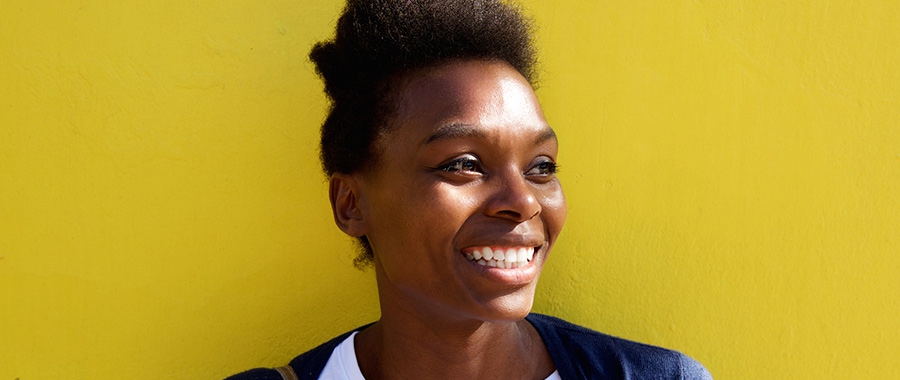

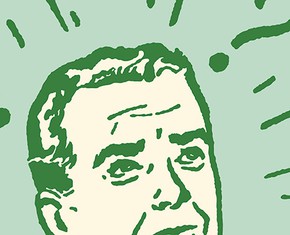

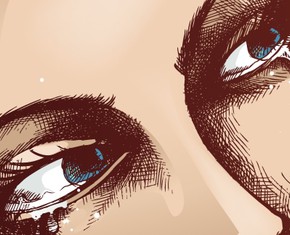
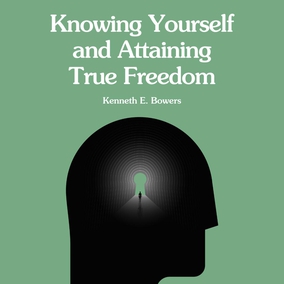
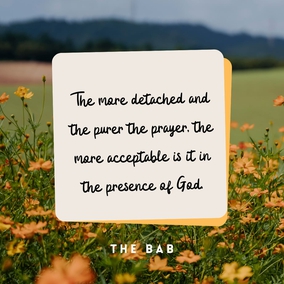
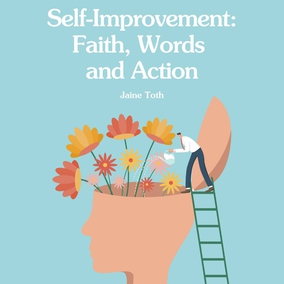

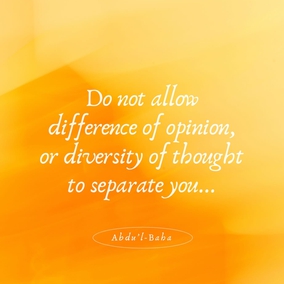
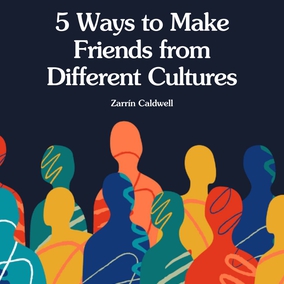
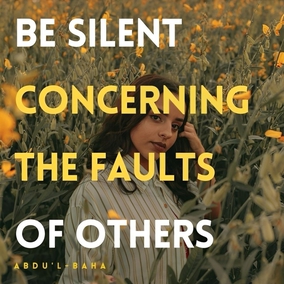


Comments
Sign in or create an account
Continue with Googleor